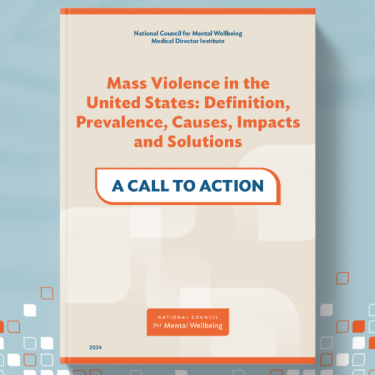FOR IMMEDIATE RELEASE
Contact:
Sophia Majlessi
SophiaM@TheNationalCouncil.org
(202) 621-1631
WASHINGTON, D.C. (July 29, 2019) – The National Council for Mental Wellbeing Board of Directors has determined to support the bipartisan Mainstreaming Addiction Treatment (MAT) Act (H.R. 2482), authored by Reps. Paul Tonko (D-N.Y.), Antonio Delgado (D-N.Y.), Ben Ray Luján (D-N.M.), Ted Budd (R-N.C.), Elise Stefanik (R-N.Y.) and Mike Turner (R-Ohio).
The MAT Act removes the DATA-2000 waiver requirement for health care providers to prescribe buprenorphine. The bill also requires the Secretary of Health and Human Services to conduct a national campaign to educate practitioners about the changes and encourage providers to integrate substance use treatment into their practices.
The National Council Board supports this bill’s efforts to remove a major hurdle to prescribing buprenorphine, thereby increasing the number of providers able to provide medication-assisted treatment. Waiver requirements do not exist for clinicians licensed to prescribe opiates or other addiction and mental health medications.
Removing the burdensome waiver requirement for buprenorphine would have an especially great impact in rural areas where access to medication-assisted treatment is currently extremely low and there are few waivered providers to provide access to this evidence-based treatment.
The National Council has long recognized that there are multiple paths to recovery and person-centered treatment allowing patients access to all forms of medication-assisted treatment is essential. While medication coupled with psychosocial supports is often considered the best model of care, access to medication alone can keep patients alive until they are ready to change treatment.
In conjunction with lifting the DATA 2000 waiver requirement, the National Council Board strongly supports efforts to ensure providers are adequately trained on how to prescribe buprenorphine and medication-assisted treatment. The National Council will work with Rep. Tonko and his colleagues to advance these educational and training efforts.
Help us advance access to medication-assisted treatment. Ask your members of Congress to sign on to this legislation or thank them for their support, if they have already signed on. Click here to take action.
We thank Rep. Tonko for his efforts and welcome any feedback from our members regarding the MAT Act. Stay tuned to the National Council’s Capitol Connector for updates and additional opportunities to get involved.
###
The National Council for Mental Wellbeing is the unifying voice of America’s health care organizations that deliver mental health and addictions treatment and services. Together with our 3,000 member organizations serving over 10 million adults, children and families living with mental illnesses and addictions, the National Council is committed to all Americans having access to comprehensive, high-quality care that affords every opportunity for recovery. The National Council introduced Mental Health First Aid USA and more than 1.7 million Americans have been trained.
About The National Council
Founded in 1969, the National Council for Mental Wellbeing is a membership organization that drives policy and social change on behalf of over 3,100 mental health and substance use treatment organizations and the more than 10 million children, adults and families they serve. We advocate for policies to ensure access to high-quality services. We build the capacity of mental health and substance use treatment organizations. And we promote greater understanding of mental wellbeing as a core component of comprehensive health and health care. Through our Mental Health First Aid (MHFA) program, we have trained more than 4 million people in the U.S. to identify, understand and respond to signs and symptoms of mental health and substance use challenges.



